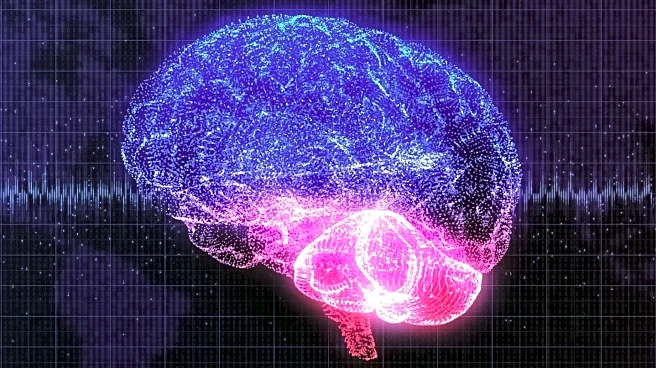What's Happening?
A Canadian study has found that traumatic brain injuries (TBIs), often caused by falls, significantly increase the risk of dementia in older adults. Researchers tracked 260,000 individuals, half of whom had TBIs, and discovered a 69% higher risk of dementia diagnosis within five years for those with the injury. TBIs can lead to brain cell damage and abnormal protein buildup, contributing to dementia. The study highlights the importance of preventing falls and addressing TBIs to reduce dementia risk.
Why It's Important?
The findings underscore the need for fall prevention strategies, particularly for older adults, to mitigate the risk of TBIs and subsequent dementia. With millions of Americans affected by falls annually, the study emphasizes the broader public health implications and the potential to reduce healthcare costs associated with dementia care. Understanding the link between TBIs and dementia can inform policy decisions and resource allocation for preventive measures and support services. The research may also contribute to advancements in dementia diagnosis and treatment.
What's Next?
Healthcare providers may focus on developing targeted interventions to prevent falls and manage TBIs in older adults. Public health campaigns could aim to raise awareness about the risks associated with TBIs and promote safety measures. Further research may explore the biological mechanisms linking TBIs to dementia, potentially leading to new therapeutic approaches. The study's findings could influence policy decisions regarding funding for dementia research and support services.
Beyond the Headlines
The study raises ethical considerations about the care and support for individuals with TBIs and dementia. It also highlights cultural aspects of aging and the importance of community support for older adults. The findings may prompt discussions on the need for comprehensive health policies that address the challenges of aging populations and support preventive care.










